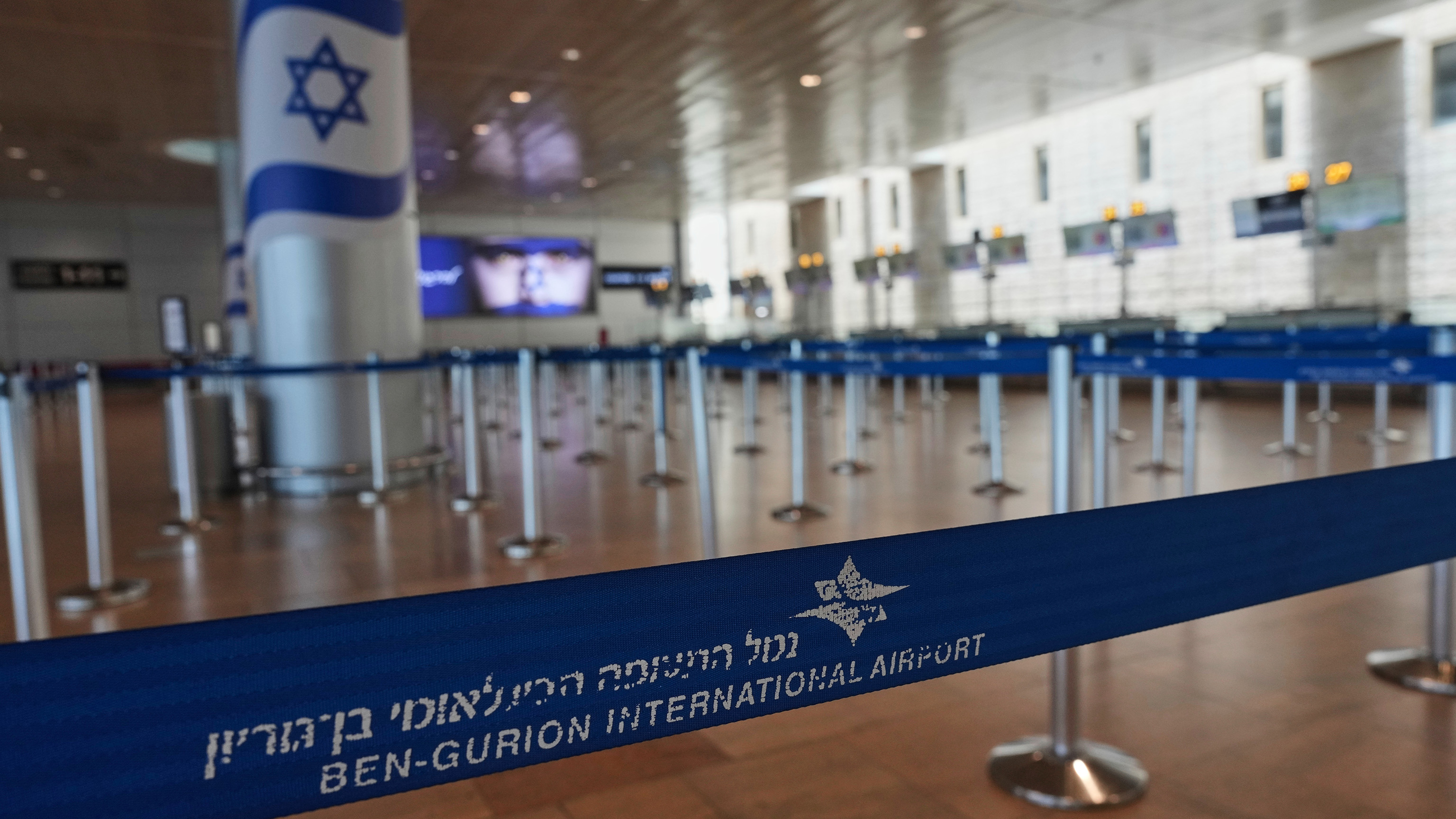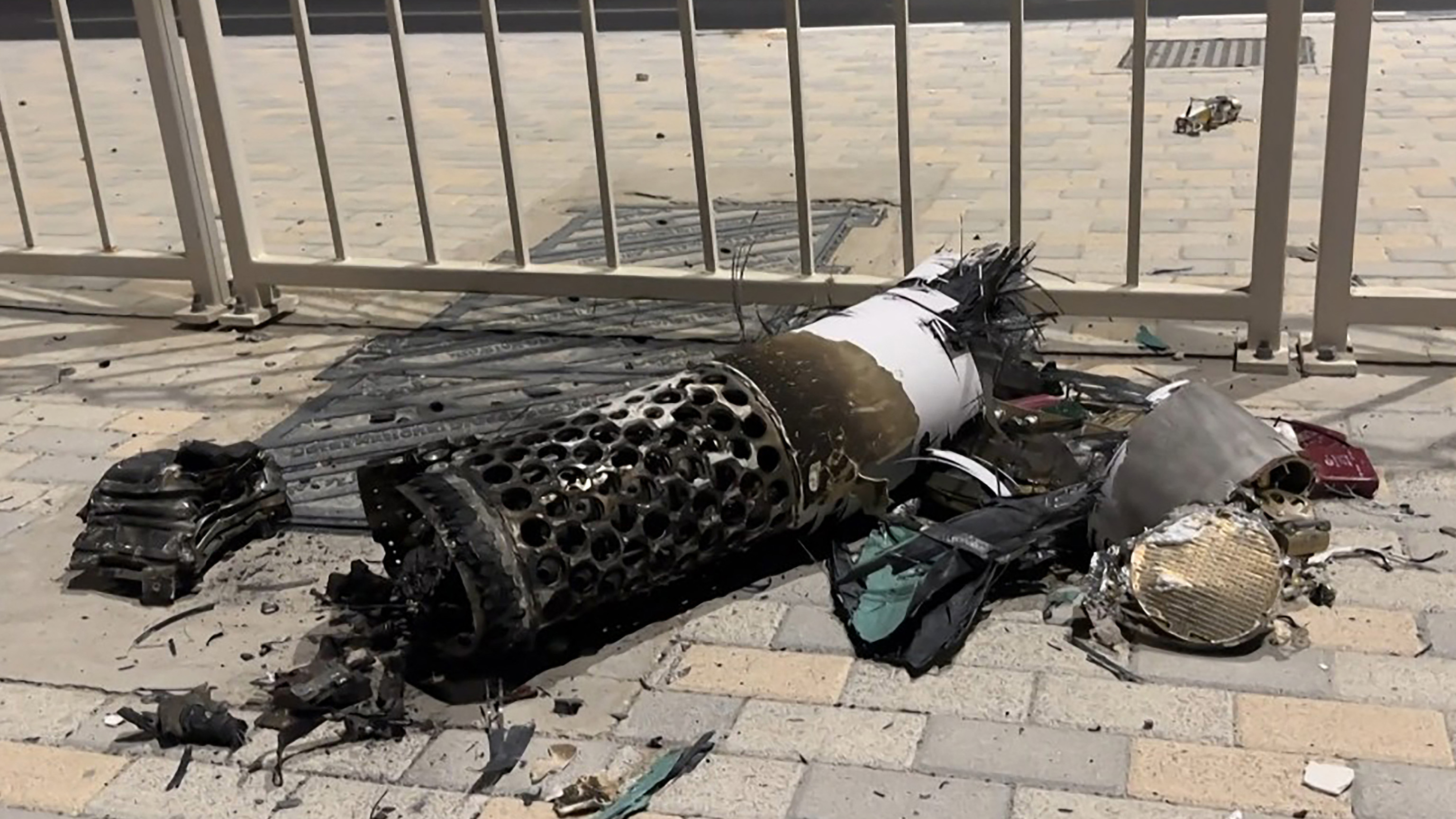How US strikes on Iran will impact travel as State Dept. issues 'worldwide caution'

The State Department has issued new warnings for Americans traveling around the world following U.S. airstrikes on Iran.
On Saturday night, President Donald Trump confirmed the U.S. military carried out strikes on three key nuclear facilities in Iran -- Fordo, Natanz and Isfahan -- using 14 "bunker-buster" bombs known as MOPs, or Massive Ordnance Penetrators.
As a result of the U.S.' involvement, which initially started as a conflict between Israel and Iran, after Israel launched a strike against Iranian military and nuclear facilities on June 13, the U.S. State Department issued an alert on Sunday advising U.S. citizens overseas to exercise increased caution.
State Department issues Worldwide Caution Security Alert

"The conflict between Israel and Iran has resulted in disruptions to travel and periodic closure of airspace across the Middle East," Sunday's alert read. "There is the potential for demonstrations against U.S. citizens and interests abroad."
The State Department advised Americans to exercise increased caution globally and to check its specific country advisories, as well as "any recent security alerts when planning travel."
Where to find latest US travel security status
The State Department's country-specific travel advisories and security alerts can be found on its website and should be consulted when planning travel.
Travelers can also join the department's Smart Traveler Enrollment Program, or STEP, which allows users to "get important alerts and updates from the U.S. embassy or consulate for the destination in which you are visiting or living."
"STEP messages are sent to your email. It also helps the U.S. embassy or consulate reach you or your emergency contact in an emergency," the website reads.
Departure efforts and information to help US citizens leave the Middle East
Israel and the West Bank
The State Department issued new updates on Sunday with embassy branch information for Americans planning to leave Israel and the West Bank, including passport services, crossing operations schedules, exit tax fees and flight delay or cancellation expectations.
The embassy has advised U.S. citizens seeking to leave Israel or the West Bank to "take the first available option, even if it is not your first choice of destination."
The embassy remains on authorized departure status and has carried out at least two military flights to evacuate nonessential staffers and diplomats' family members from the country in the past week, bringing the total number of evacuees from the embassy to over 100, per an official.
U.S. Ambassador to Israel Mike Huckabee said Saturday that the U.S. began running assisted departure flights for private American citizens, but as of time of publication there was no update to the status of those efforts. A department official anticipated flights could ramp up in the coming days. According to the official, over 6,000 people in Israel have contacted the embassy about departure options.
The U.S. Embassy in Jerusalem and Branch Office in Tel Aviv are closed Monday for emergency U.S. passport services.
"The U.S. Embassy is also aware that there are commercial opportunities to depart Israel by ship, and U.S. citizens should check local media if other commercial opportunities arise to depart as we may not be able to provide the information before such travel options sell out," the latest security alert stated.
Click here for additional details and full departure information.
Limitations on departing flights from Israel
Israeli airlines will operate outbound flights from Tel Aviv's Ben Gurion Airport on Monday out of Terminal 3 for the first time since June 13 but will have a strict limit of 50 passengers per plane.
"Ticket purchases are open to all applicants and without preference for passengers. Priority will be given to life-saving, humanitarian cases, and those based on security and national considerations," the Israeli Airport Authority stated.
Iran
Although the U.S. has no diplomatic presence in Iran, the State Department is encouraging Americans in the country to depart "by land to Azerbaijan, Armenia, or Türkiye if they deem conditions are safe/if they can do so."
The State Department is encouraging U.S. citizens in Iran to enroll in STEP and fill out its crisis intake form, found online here, in order to receive information about consular assistance.
"However, because of the limitations on consular support in Iran, we do not anticipate offering direct U.S. government assisted departure from Iran," a security alert stated.
"U.S.-Iranian dual nationals must exit Iran on Iranian passports and should be prepared to encounter checkpoints and questioning from Iranian authorities before departing Iran," the alert read. "The Iranian government does not recognize dual nationality and will treat U.S.-Iranian dual nationals solely as Iranian citizens. U.S. nationals are at significant risk of questioning, arrest, and detention in Iran."
The State Department said it is aware of hundreds of Americans who have successfully crossed Iran's land borders in recent days, and hundreds more who are awaiting authorization to enter neighboring countries, per an official.
Iraq
According to the State Department, officials impacted by the ordered departure issued on June 11 are continuing to depart from the U.S. Embassy in Baghdad.
"The U.S. Embassy in Baghdad and Consulate General in Erbil have temporarily suspended all routine visa services. Both the Embassy and the Consulate General continue to provide services for U.S. citizens," a security alert issued Sunday read.
The alert continued, "There is increased potential for foreign terrorist organization-inspired violence or attacks against U.S. businesses and locations frequented by U.S. citizens. We urge all U.S. citizens in Iraq to avoid locations frequented by foreigners and any large gatherings or crowds. The land borders to Kuwait and to Türkiye remain open."
Lebanon
As of Sunday, the State Department has ordered the departure of family members and non-emergency U.S. government personnel from Lebanon due to the volatile and unpredictable security situation in the region.
"Due to ongoing regional events, we remind U.S. citizens to continue to exercise caution and encourage them to monitor the news for breaking developments," a security alert stated, advising "commercial transportation options to leave Lebanon remain available but limited."
Middle East countries with heightened alerts, new restrictions
Jordan
Officials say they do not anticipate offering government-assisted departure options or evacuations from Jordan in the immediate future, but that they are actively planning for situations where that becomes necessary.
"The Department of State's Travel Advisory for Jordan remains at Level 2: Exercise Increased Caution. We have no announcement about assisting private U.S. citizens to depart Jordan at this time. The Department of State is always planning for contingencies to assist with private U.S. citizens' departure from crisis areas," a travel advisory stated. "We will alert the U.S. citizen community if there is additional information to share regarding departure options."
Turkey
On Sunday, the State Department issued an updated advisory for travel in Turkey cautioning U.S. government personnel "to maintain a low profile" and "avoid personal travel to the U.S. Consulate Adana consular district, which comprises Türkiye's 22 southeasternmost provinces."
"Negative sentiment toward U.S. foreign policy may prompt actions against U.S. or Western interests in Türkiye," the alert continued. "In the past, such activities have included demonstrations, calls for boycotts of U.S. businesses, anti-U.S. rhetoric, and graffiti.Large gatherings may result in enhanced police presence, road closures, and traffic disruptions.Any gathering, even those intended to be peaceful, could escalate and turn violent on short notice."
Saudi Arabia
"Given reports of regional hostilities, the U.S. Mission to Saudi Arabia has advised its personnel to exercise increased caution and limit non-essential travel to any military installations in the region," an update on Sunday stated. "We recommend American citizens in the Kingdom do the same. The U.S. Mission to Saudi Arabia continues to monitor the regional situation."
The statement continued, "We encourage all travelers to review our most recent Security Alerts, review any travel plans in case of disruptions, and make appropriate decisions for themselves and their families. At this time, U.S. Mission staffing and operations are unchanged, and consular services continue as normal."






